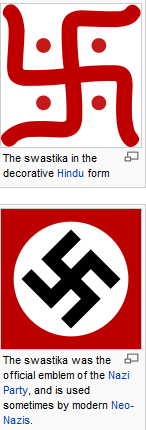 Author and historian John Cornwell may be a Roman Catholic but, as his writings frequently reveal, he is no great friend of the Vatican, something that always has to be remembered when reading his commentaries on that particular institution. Nevertheless I was intrigued by his description (in a Guardian piece from yesterday) of Jean Vianney, a nineteenth century French parish priest being pushed by the current pope as some sort of role model for today’s clergy:
Author and historian John Cornwell may be a Roman Catholic but, as his writings frequently reveal, he is no great friend of the Vatican, something that always has to be remembered when reading his commentaries on that particular institution. Nevertheless I was intrigued by his description (in a Guardian piece from yesterday) of Jean Vianney, a nineteenth century French parish priest being pushed by the current pope as some sort of role model for today’s clergy:
Vianney, born in 1786, worked as a farm labourer until called into Napoleon’s army. He went awol but amnesty was declared for deserters and, though virtually illiterate, he entered the seminary. He was appointed priest of Ars in the Rhônes-Alpes – a parish that was, according to his view, sunk in sin. In fact his parishioners were sunk in toil, hardship and poverty. Occasionally they drank and danced in the tavern – for Vianney, “the house of the devil, and the market where souls are lost”.
Dancing was a prelude to sexual sin. He paid the bar owner to move away, so that dancing would be abolished. Remove the temptation and you remove the sin, that was his take-home message. When he discovered that village children were scrumping apples from his orchard, he chopped down the trees. He obliged the children to come at six every morning to be instructed in the catechism, to be learned by heart.
To prevent his own susceptibility to sin, Vianney whipped himself nightly with a scourge made of bits of metal, leaving blood up the wall for his housekeeper to clean up. Next to his skin he wore a hair shirt, a metal chain, and a tight cord or discipline. He slept on the stone-flagged floor with a log for a pillow. He rose repeatedly during the night to pray face down in the church.
These activities, he believed, warded off the devil, who constantly, he claimed, tormented him with noises and on one occasion set his bed on fire. For food he would cook a pan of potatoes, and eat them cold through the week. Sometimes he ate grass as a supplement. At the end of the week there would be a few rotten potatoes left which he devoured before boiling up a new pan.
The villagers now spent their free time in church listening to his sermons, which mainly featured the devil and the torments of hell. He convinced his parishioners of the need for frequent confession. Eventually he was spending 14 hours a day in the confessional. If a parishioner was known to have danced he would refuse absolution. Vianney turned himself into a rabid ascetic and his village into a monastic gulag.
An accurate account? Well, judging from a quick wander around the Web looking into the life of this most peculiar saint (he was canonized in the 1920s), pretty much so. Here’s an extract from an admiring account of his life:
One meal sufficed him for the whole day. He abstained from alcohol except wine at holy Mass and normally ate only a little black bread and one or two potatoes cooked in water: he would prepare sufficient of these to last him the whole week, keeping them in an earthenware pan, and often they were covered with a coating of mold. Frequently he fasted for a whole day until, overcome, he would collapse from physical weakness. In view of this mode of life he had no need, of course, of a housekeeper – apart from the fact that his house stood almost empty anyway. Since he considered that his self-mortification was all too inadequate, he had a special penitential garment made, which he wore next to his skin, and which, by reason of the constant friction against his body, was soon stained a reddish brown. For the most part he slept on a bare mattress when he was not sleeping on a bundle of wood down in the cellar.
St. John Vianney’s assiduity in the confessional and the hardships entailed thereby would, of themselves, have sufficed to raise him to high sanctity. However, he thirsted for mortifications as others thirst for pleasure, and he never had his fill of penance. He laid on himself the sacrifice never to enjoy the fragrance of a flower, never to taste fruit nor to drink, were it only a few drops of water, during the height of the summer heat. He would not brush away a fly that importuned him. When on his knees he would not rest his elbows on the kneeling bench. He had made a law unto himself never to show any dislike, and to hide all natural repugnances. He mortified the most legitimate curiosity: thus he never expressed so much as a wish to see the railway which passed by Ars at a distance of a few kilometers, and which daily brought him so many visitors. During the whole of his priestly life he never indulged in any light reading, not even that of a newspaper. The Annals of the Propagation of the Faith are the only periodical that he ever perused.
A curious choice of role model, I have to say.
 Preface by Razib: My friend Aziz Poonawalla responded to my previous post with a long missive, which you can read below. To the left is a photo of the both of us in late 2004 when I visited him in Houston. I’ve lost some weight since that time. In general despite our different religious outlooks there are core basic liberal democratic values we both adhere to. In general I’ve had a difficult time over the past few years talking about the subject of religion and Islam because my own views have become very “gnarly.” Hopefully this exchange with Aziz will clarify some issues for both us.
Preface by Razib: My friend Aziz Poonawalla responded to my previous post with a long missive, which you can read below. To the left is a photo of the both of us in late 2004 when I visited him in Houston. I’ve lost some weight since that time. In general despite our different religious outlooks there are core basic liberal democratic values we both adhere to. In general I’ve had a difficult time over the past few years talking about the subject of religion and Islam because my own views have become very “gnarly.” Hopefully this exchange with Aziz will clarify some issues for both us.




